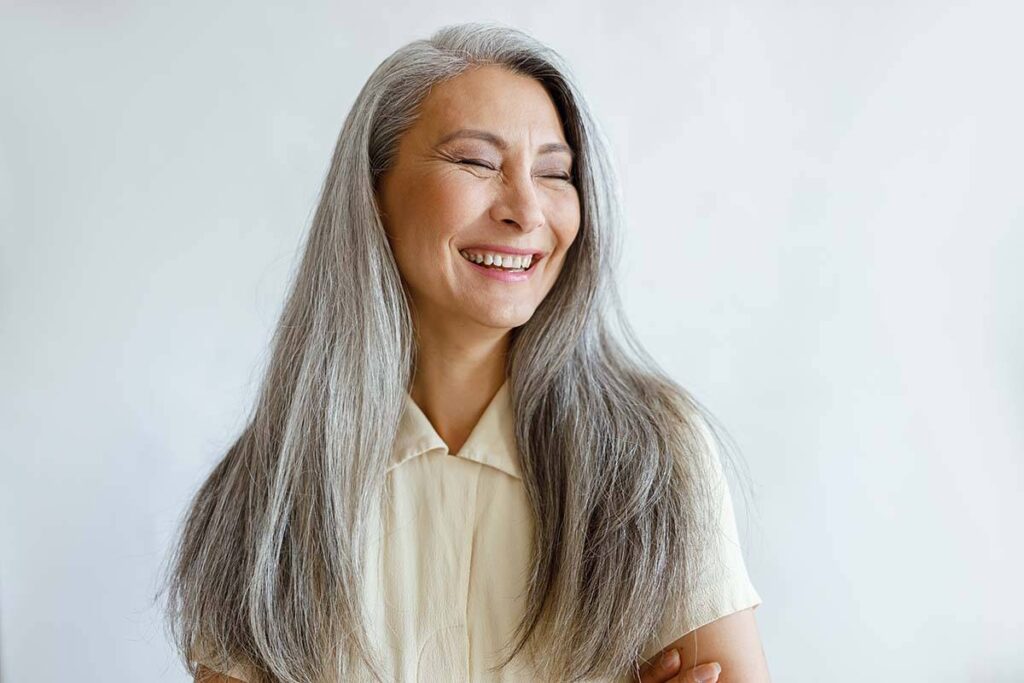
Minoxidil, also known as "Rogaine for women", is one of the earliest hair loss medications and the active ingredient of Rogaine®, a well-known hair loss solution that’s been around since 1988. Minoxidil is the only FDA-approved topical product for androgenic alopecia, also known as female pattern hair loss (FPHL). Over the years, Rogaine® has offered its product in both 2% and 5% minoxidil strength, and as both a liquid and foam for topical use. So is oral or topical minoxidil for women better than the other?
In addition to topical form, there is also an oral minoxidil option. Several studies have been done on the efficacy of oral minoxidil for hair loss in women. In low doses, it has been deemed a safe alternative to topical minoxidil. Typically it has a low compliance rate due to the frequency with which patients must apply the product and the scalp irritation it can cause.
In the past, oral minoxidil was used mainly to treat high blood pressure. However, it had the potential for serious side effects (headaches, ankle swelling, rashes, and increased facial and body hair). At the low doses prescribed for female hair loss, though, these side effects are more rare. There are some circumstances where oral minoxidil is a better choice for hair growth in women over topical:
According to the Journal of the American Academy of Dermatology, oral minoxidil can be an option for patients with poor compliance or who can’t tolerate the topical version.
That said, oral minoxidil is usually not the first choice for female hair loss treatment. This is due to the possible side effects involved with this medication, mainly hypertrichosis (unwanted hair on the face and body), headaches and low blood pressure. For that reason, topical minoxidil is attempted first. Studies have shown that while the topical and oral versions were equally effective at reducing or reversing hair loss in women, the oral option was more likely to result in side effects.
While topical minoxidil can seem inconvenient, as it has to be applied once a day for women at 5% formulation for six months to see results. it’s considered safer in patients with a significant medical history. In addition, the oral form has yet to be documented in controlled studies. It is still an FDA off-label treatment for female hair loss management.
Topical minoxidil for women often works best in conjunction with other treatments. Studies show that combination therapy, with PRP and minoxidil or LLLT and minoxidil, is more effective than minoxidil alone. Take a look at this case study that combined three treatments of Painless Optimal Platelet Concentration™ (OPC) Therapy, minoxidil, and hair loss supplements.
Painless OPC therapy, applied to the scalp, involves the use of a medical device to deliver powerful mist jet streams. These streams infuse into the scalp through hydroporation. This turns the PRP into droplets so they can enter the scalp subdermally. In addition to that treatment, minoxidil can be applied topically to promote hair growth. Hair loss vitamins and supplements can be taken orally to assist in the same goal.
Another recent case study involves a dual therapy treatment with a Low-Level Laser Therapy (LLLT) laser cap device and minoxidil 5% for an androgenetic alopecia diagnosis. A non-surgical treatment option, the laser cap is a device using Low-Level Laser Therapy (LLLT) to stimulate the hair follicle cells for growth. Utilizing a cool beam laser to encourage tissue repair and recovery on the scalp, these light forms can’t burn the skin, meaning prolonged use is safe for patients.
Originally, minoxidil was formulated for the treatment of hypertension. However, it was soon discovered that minoxidil could help regrow hair. It is not totally understood how minoxidil treats hair loss. However, it is believed that it may allow for increased blood flow and, thus, oxygen to the follicles. Minoxidil is best known for the treatment of androgenic alopecia.
We have a specially compounded minoxidil solution formulated for absorption at a higher rate. It is less greasy and less irritating than other minoxidil products. We found that our patients have had a lot of success with this formula, especially when used in conjunction with other treatments like Platelet Rich Plasma (PRP) Therapy or a Low Level Laser Therapy (LLLT).
If you think you may want to try minoxidil, it is best to speak with a hair loss specialist. They can help determine if it may be an appropriate treatment for your type of hair loss. Please note that minoxidil has only been FDA-approved for FPHL. It may not be appropriate for all types of hair loss. This is why it is so important to see a hair loss specialist first. They can help determine if this should be part of your treatment plan.
At your consultation, we can discuss the best treatment options for you regarding minoxidil or a combination of therapies. Typically, we start out with the topical minoxidil over the oral to see how our patients respond to that treatment.
Oral minoxidil can be considered as an option for FPHL patients with poor compliance or who can’t tolerate the topical version.